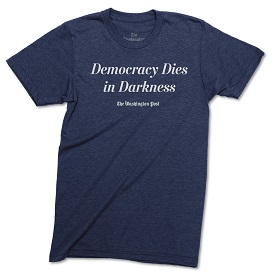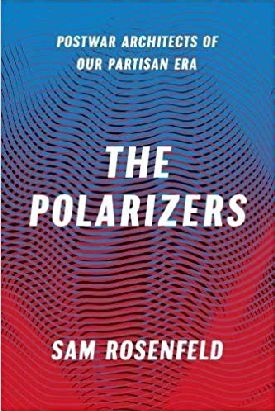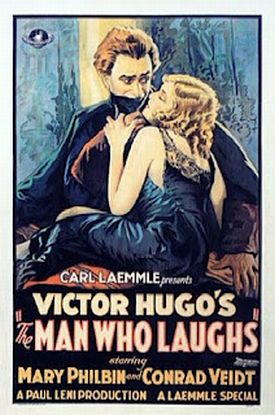Life of the Parody
— From the September-October American SpectatorThe entirely predictable success this summer of the third of Mike Myers’s Austin Powers films, Austin Powers in Goldmember, is a confirmation, if any were needed, that in the popular culture everything aspires to the condition of self-parody. Sometimes the self-parody is a genre-killer. There were no more westerns after Blazing Saddles, apart from a few grim, deconstructive anti-westerns like Silverado or Unforgiven. But sometimes, the self-parody mutates into a new genre of its own. Thus the old fashioned horror flick or creature feature of the 1950s started turning comic in the 1970s but was still going strong in its new form, with Scream and its knock-offs, in the 1990s.
The old-fashioned, James Bond-inspired spy thriller seems to fall into the latter category. The Bond franchise itself was of course tongue-in-cheek almost from the start. In fact, a case could be made (and some film-studies type has probably made it) that the Bond movies of the 1960s represent the first green shoots of the postmodernism that wasn’t to blossom in Hollywood for another 15 years, with Star Wars and Indiana Jones. Yet they keep turning them out even today, and a new one is due this fall. That Mr. Meyers’s parody-Bond is able to go back to the well again and again suggests that he may have an equally long, if not inexhaustible, career. He learned from the original Bond that the parody is better than the real (cinematic) thing — assuming that one could even imagine what the real thing would look like anymore.
All this has had an inevitable effect on other spy-thrillers, which have now become almost impossible to make with a straight face. Take, for example, the film that succeeded Austin Powers as box office champ, XXX (pronounced “Triple-X”) directed by Rob Cohen and starring the improbably-named Vin Diesel. Right at the beginning we see a traditional, Bond-style agent in a dinner-jacket comically trying to look inconspicuous at a rock concert. Naturally he is shot and killed by the bad guys, and his body is carried off by the gyrating crowd as if he had gone diving in the mosh-pit. The point seems to be deliberately to mock the unreality of the agent as urbane, well-dressed representative of the official culture.
At any rate, it provides the set-up for Gibbons, Samuel L. Jackson’s CIA agent, to say to Mr Diesel’s character, called Xander Cage, that all he has to work with are “ex-military” types and that the bad guys “can smell the training on our agents a mile away.” That means that he must go dumpster-diving for “the best and brightest of the bottom of the barrel” — to wit, Mr Triple X, a skateboarding, snowboarding, car-stealing “extreme sports” practitioner whose videotaped exploits have made him a hero to slackers the world over. “Do we want to drop another mouse in the snake pit,” says Gibbons to his skeptical colleagues back at the Agency, “or do we want to send our own snake and let him crawl in?”
But of course Xander isn’t really the bottom of the barrel. Incredibly, in spite of becoming a legend for largely illegal activities, he has no arrest record. He’s just misunderstood, like your average teenager whose parents, and the cops, don’t want him to have any fun. He is, in short, a remarkably frank projection of teenage wish-fulfilment, an embodiment of the essential immaturity of the idea that someone (someone like me!) could just walk in off the street and outperform all the highly trained agents of his country’s security services. See? What do parents and teachers and cops know? Discipline, practice, sobriety, hard work, training, all of this counts for nothing. I could do that all that stuff — being the kind of “street-smart” character that I am.
Mr Diesel naturally saves the world with derring-do that is virtually indistinguishable from the Bond variety, apart from its tip of the do-rag to the kiddie culture in which stupidity is a virtue (“I like anything fast enough to do something stupid in,” says X). Thus where Bond would outrace an avalanche on skis, X does it on a snowboard. When he finds himself reluctantly assisting the Czech constabulary to prevent a chemical/biological attack by a remarkably well-organized gang of anarchists, he scolds the cops for pussyfooting. “Stop thinking Prague police and think Play Station,” he explains: “Blow s*** up.” Even the fascination with gadgets is the same, though slightly altered. One can’t quite imagine, for example, a relative grown-up like James Bond waxing enthusiastic, as X does, about every little boy’s dream: a pair of binoculars with “penetrator mode” capable of seeing through women’s clothes.
You might think of X as the James Bond of the anarchists. So how does it happen that his exploits here are all undertaken on the side of the police and the CIA? At one point he and the anarchist leader, a former Russian soldier called Yorgi (Marton Csokas), agree in song that you’re not really free if you cannot urinate on the floor of a deli (in the words of a punk-rock ditty that both of them have by heart) and Yorgi says that “you of all people should understand” a revolutionary movement dedicated to the abolition of all social and governmental restraints. Yet whatever process of moral reasoning may have led Mr X — whose very name suggests an alienation from parental ties and therefore adult society — to throw in his lot with the other side is a matter of no interest to the filmmakers. Like X himself, they just want to “blow s*** up.”
The style-only anarchism of XXX itself is clearly pretty tame stuff. The movie even has time to incorporate an anti-smoking message, just like teacher. Political sophistication is hardly a prime requisite of movies made for 15-year-olds. Yet even such ostensibly adult fare as The Bourne Identity proves to be quite as juvenile in conception. In some ways it looks like a straggler from the herd of movies of the 1970s and 1980s, such as The Parallax View or Three Days of the Condor or The Amateur, in which the U.S. government in general and the CIA in particular were depicted as a nest of malevolent conspiracy, but it has not even such exiguous political plausibility as those films had. In fact, it has no political point. The CIA is just the engine by which another stateless, identity-less Mr X is created, and a temporary obstacle in the path of his progress to a glorious, anarchic autonomy that is every bit the fantasy that XXX is.
As Jason Bourne (not his real name), the new action hero, Matt Damon, is almost comically implausible. The first time we see him up and about after being found floating in the Mediterranean with two bullets in his back, he is pitching a fit and venting his girlish rage at not being able to remember anything. This guy is supposed to be a professional assassin? The only thing that looks authentic about him is the attack of conscience which makes him turn against his employers. Of course, we see him fighting other tough-guys with the usual array of “martial arts” techniques, but director Doug Liman is even more than most directors of action flicks these days driven to rely on quick cuts to lessen the implausibility of his routinely defeating them. We see a lot of the devastating impact of his blows, but little of the strength and athleticism behind them, which we are meant, I guess, to take on faith.
Not to mention that the whole amnesia-plot is just too, too daytime TV. There is a brief attempt to defuse this criticism in the film where Damon’s character tells Marie (Franka Potente) the ditzy but attractive hard-luck gal he picks up to help him on the run that “I can’t remember anything that happened before two weeks ago.”
“Lucky you,” she says, thinking it a joke. And then, when she sees he’s not laughing, “You mean like amnesia.” In other words: tell me this is a joke.
“Yes,” says the sufferer solemnly. Oh-oh. No joke. But though Marie may be persuaded we are not. This is the only time the word “amnesia” is mentioned, for understandable reasons. We also can’t help noticing that the US government has thoughtfully prepared him for his career as an amnesiac by implanting a hip-chip on which is recorded information as to what Swiss bank to go to to find a safe deposit box full of money and passports. Nor are the people’s servants back at Langley any more plausible. Chris Cooper plays the heavy, Conklin, with lines like, “I want Bourne in a body-bag by sundown.” And why? Merely to cover his bureaucratic posterior for having commissioned a botched assassination. Why he commissioned the assassination in the first place is anybody’s guess.
In other words, the movie is just going through the motions of the spy thriller. When everything is parody, why bother with anything else? After the cliché of the amnesiac who is trying to find out who he is we have the cliché of the hero who likes being nobody. “I don’t want to know who I am anymore,” he tells Marie. “I don’t care….Everything I find out, I want to forget.” So why not just run off with her? Light out for the territory like Huck Finn. “We have this money,” he explains. “We can hide…Is there any chance you can do that?” When Conklin greets him by saying “I thought we were on the same side,” Bourne comes out with it: “I’m tired of this….I’m on my own side now.”
At one level, the parody level, this seems to put him in the tradition of American heroism since the Second World War he is A Man Alone. Like everyone from Gary Cooper to Clint Eastwood to Bruce Willis, he is an anti-social hero. The rest of the world just isn’t up to his high standards. At one point, in fact, when he has shot the frighteningly competent assassin called The Professor (Clive Owen) who has come to kill him, he asks the dying man how many are with him. “I work alone,” he says. “Like you. We always work alone.” D’oh! How could he have forgot that. The man then dies, saying “Look at this: look at what they make you give.” Golly, a man whose business is killing people getting shot himself! What are the odds? I guess he never expected that.
But at another level, it shows us the extent to which the whole rationale of the spy thriller has been taken away from it. James Bond worked alone too, but his absolute, reliable patriotism was part of what made him so glamorous. Even if his enemies were increasingly ridiculous rogue figures, it was they who were the isolated and stateless ones and he who, if only subliminally, stood for civilization and stuffy but good-natured bureaucrats in Whitehall who came to work every day from trim suburban villas. Though also a fantasy, he was a fantasy not just of individual cool and swagger but of a good society where loyalty and community was finally more important than he was. It was a world where people, though free to drink martinis and smoke cigarettes and have sexual intercourse, also made sacrifices for each other. It may have been a fantasy, but it had a serious side. And it was a far more healthful fantasy than we have got since the spy-thriller became all parody.
Discover more from James Bowman
Subscribe to get the latest posts to your email.







